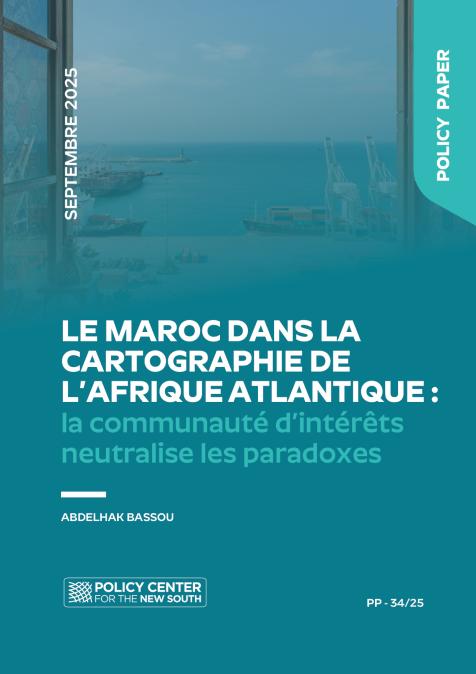Publications /
Opinion
This young Ivorian entrepreneur, who has spent 7 years abroad, has moved back home in 2015 to head the local NGO 35.35. Since July 2021, he has been in charge of Africa for Dunia Payment, a startup operating in fintech through a mobile app, aiming at democratizing banking services.
Richard Seshie was born and raised in Abidjan, the capital city of Ivory Coast. His childhood dream was all about strategy. “I wanted to enroll in the army, but this was just a dream and I don’t really have the physical abilities. Later on, I discovered that many of my projects imply strategic thinking”.
After highschool, he was asked – as is the rule in the public system – to study Geography at the University of Cocody, also named after the late president Félix Houphouët-Boigny. There, he nurtured what he calls a “natural intrest in volunteering and social impact activities”.
He traveled in 2008 to India, for a two-year training with the notorious NGO Ashoka, supporting “change leaders” and social entrepreneurs, and also with an enterprise dealing with socially responsible investments. From there, he went to Morroco to work on “Community affairs” for Microsoft, for one year. He then moved to Ghana, where he was involved for three years in a program dedicated to startups. His learning route took him further to the United States of America, following programs around entrepreneurship in the Silicon Valley and living for a few months in New York.
Back in Ivory Coast to support young leaders
One year after his return in Abidjan in 2015, the Association 35.35 was born, organizing the yearly “Africa 35.35 Awards” for cohorts of 35 young leaders from different African countries, with an age limit of 35. “We wanted to show that beautiful things happen in Africa, and take our leaders as role models to get more youth inspired”.
Since 2016, a total of 182 young leaders from 30 countries have been rewarded, during a yearly event of three to four days set in a big African city (Abidjan and Accra). “There, they can connect, meet senior leaders and build their capacities”. In 2020, the Covid-19 crisis led 35.35 to organize a virtual event, and since 2019, the Association has launched a “social innovation studio”.
How does it work? “We are identifying social issues in Ivory Coast and we propose projects, innovating initiatives done in collaboration among our pool of young awarded leaders”, explains Richard Seshie.
For instance, Kevin Sesse, head of the online platform “Mon Artisan” (“My Craftsman”), linking plumbers, painters, builders or carpenters to their clients. “We have worked on coolroofing with a reflecting paint useful against climate change. We participated in the Coolroof Million Challenge to cool African cities, and we received 125 000 USD to work on a demonstration project with a school in the town of Pacobo, located in the southern part of the country”.
Promoting social innovation
Another project launched by 35.35 dealt with demands of public domain occupation, in order to make them much easier for small street vendors. “Entrepreneurs in the informal sector usually settle in the public domain to launch a little shop or sell on the street. It requires a permit, but the process is not very transparent and takes time at the City Hall. The Cities Alliance has given us a 50 000 USD grant, to help the municipality of Cocody, in Abidjan, manage the process with an open source called eServices Techniques. Online submissions can be followed until the final authorization, reducing delays from 8 to 2 weeks”.
Richard Seshie came to the Atlantic Dialogues conference in Marrakesh in 2017, after being selected by the Policy Center for the New South (PCNS) for its ADEL program, along 49 other young leaders from the wider Atlantic. “I found out about the program online, and once in Marrakesh, I enjoyed meeting with policy makers. Discovering the role of a think tank as a force of proposition with an African vision was also very interesting, besides interacting with my peers. I felt other voices could be heard on many issues, with broader perspectives for a young entrepreneur like me, invited not to stay in my “silo” but see how bigger things work”.
Today, this keen reader of Harvard Business Review, also a music lover, has a clear aspiration: “We are trying to become a hub of social innovation in French-speaking Africa. Our aim is to make innovating projects work and take them to a bigger scale”. In 2020, the Association 35.35 has helped raise 400 000 euros of funds, and wishes to grow to 10 million euros of funds raised by 2025, for the concrete execution of projects. Richard’s attitude could be emblematic of his generation : less talk and more action.
You can consult Richard’s portrait along with others on the ADEL Alumni Portrait page.










